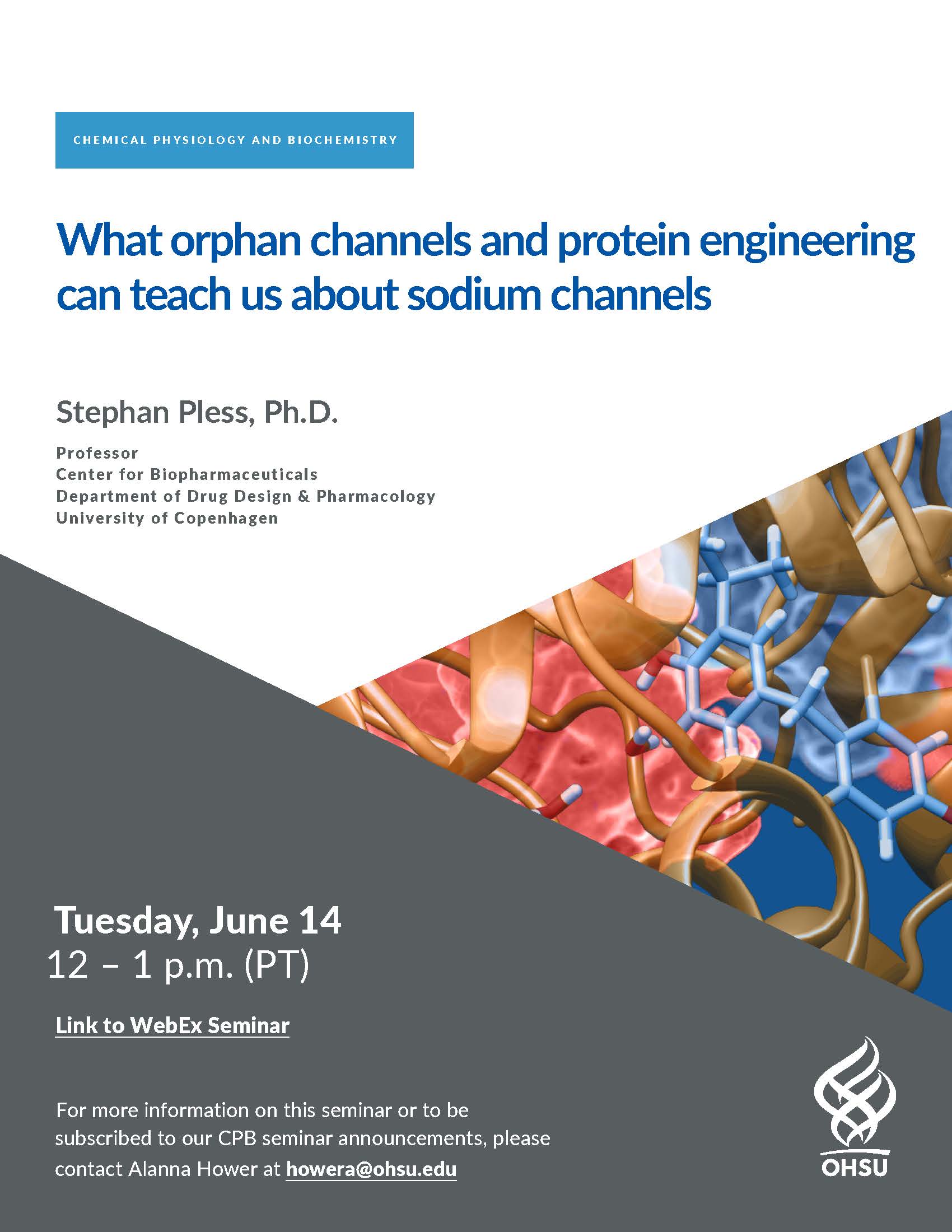"What orphan channels and protein engineering can teach us about sodium channels" Presented by: Stephan Pless, Ph.D.
Stephan Pless, Ph.D.
| When |
June 14, 2022
12 p.m. to 1 p.m.

Members of the 24-transmembrane helix sodium channel family play crucial roles in the transduction of electrical signals in numerous tissues. Not surprisingly, dysfunction of these large transmembrane proteins can have severe consequences. However, and despite decades of research, some fundamental aspects of their function remain enigmatic. For example, little is known how their function is altered by post-translational modifications, especially in combination with disease-causing mutations. Similarly, and despite high sequence similarity, it remained unknown why one of the ten members of the family has been reported to be a voltage-insensitive leak channel. Here, I will describe how we recently tried to address some of these questions. My talk will be broadly divided into two parts: in the first part, I will present our work on a semi-synthetic chemical biology approach that allowed us to study the interplay of disease-causing mutations and post-translational modifications in the cardiac sodium channel Nav1.5. In the second part, I will outline recent progress on the function and structure of a previously enigmatic member of the protein family, the sodium leak channel NALCN and its massive auxiliary subunits. |
|---|---|
| Where |
Online Only: WebEx Link |
| Contact Information |

Members of the 24-transmembrane helix sodium channel family play crucial roles in the transduction of electrical signals in numerous tissues. Not surprisingly, dysfunction of these large transmembrane proteins can have severe consequences. However, and despite decades of research, some fundamental aspects of their function remain enigmatic. For example, little is known how their function is altered by post-translational modifications, especially in combination with disease-causing mutations. Similarly, and despite high sequence similarity, it remained unknown why one of the ten members of the family has been reported to be a voltage-insensitive leak channel.
Here, I will describe how we recently tried to address some of these questions. My talk will be broadly divided into two parts: in the first part, I will present our work on a semi-synthetic chemical biology approach that allowed us to study the interplay of disease-causing mutations and post-translational modifications in the cardiac sodium channel Nav1.5. In the second part, I will outline recent progress on the function and structure of a previously enigmatic member of the protein family, the sodium leak channel NALCN and its massive auxiliary subunits.